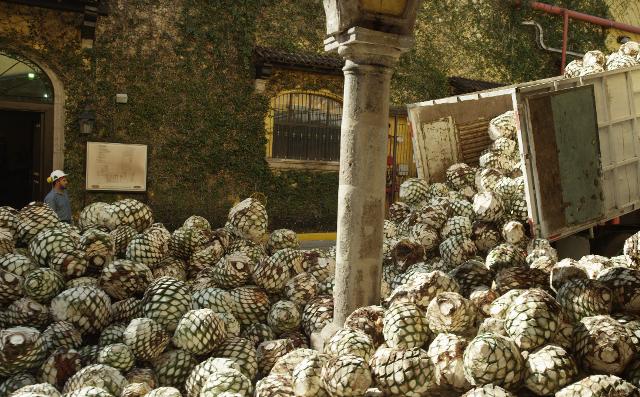
Ford teams up with tequila maker Jose Cuervo to make auto parts from agave
by Cleantech Canada Staff

Automaker looks to find a home for some of the five billion metric tons of agricultural biomass wasted worldwide every year

Ford hopes to use blue agave—a plant used to distill tequila that grows in hot and arid regions—to make bioplastics for car parts, offsetting some of the plastics currently used. PHOTO: Ford
DEARBORN, Mich.—Business, like politics, makes strange bedfellows.
The Ford Motor Co. has announced it has teamed up with Jose Cuervo, a tequila maker that has been distilling blue agave in Mexico since long before the first Model T rattled off the line in Detroit.
The two global companies have agreed to work together to turn agave fiber—a byproduct of the tequila manufacturing process—into a sustainable bioplastic that can then be used in Ford vehicle components.
“At Ford, we aim to reduce our impact on the environment,” Debbie Mielewski, senior technical leader of sustainability research at the automaker, said. “As a leader in the sustainability space, we are developing new technologies to efficiently employ discarded materials and fibers, while potentially reducing the use of petrochemicals and light-weighting our vehicles for desired fuel economy.”
Already well into development, the companies have begun testing bioplastic made from the durable plant in both interior and exterior vehicle components. Wiring harnesses, HVAC units and storage bins are a few parts of your next Ford that may be made of agave.
The automaker says the bioplastic could reduce the weight of its cars, lower energy consumption and cut down on the petrochemicals normally used for certain parts.
Growing in hot and arid regions, agave takes seven to 10 years to reach maturity. Jose Cuervo then roasts, ferments and distills the heart of the plant to make tequila, leaving a fibrous byproduct. The company has historically used some of the excess fiber for fertilizer or paper, but new sustainability initiatives have spurred the company to explore new, innovative uses. The fiber is shipped to Ford’s research centre to be converted into bioplastic, though the Dearborn, Mich automaker did not expand on what technology it’s using to complete this critical step.
Part of a global movement to reduce the estimated five billion metric tons of agricultural biomass wasted globally every year, the Ford and Jose Cuervo partnership could lead to more sustainable vehicles.
“There are about 400 pounds of plastic on a typical car,” Mielewski said. “Our job is to find the right place for a green composite like this to help our impact on the planet. It is work that I’m really proud of, and it could have broad impact across numerous industries.”